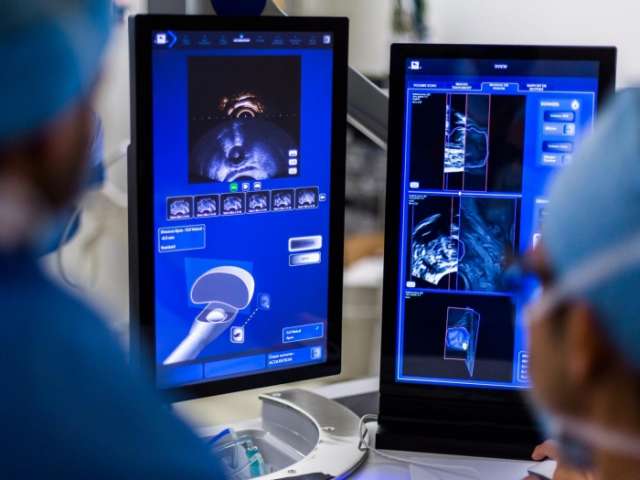Treatment discovered for previously incurable prostate cancer

Researchers from the Institute of Cancer Research (ICR) in London and the UK’s leading cancer hospital, the Royal Marsden, found that intensity modulated radiotherapy (IMRT) helped eradicate the disease when used on cancer cells that had spread from the original tumour to pelvic lymph nodes.
IMRT enables doctors to give a high dose of radiation directly to cancer cells while protecting the surrounding healthy tissue, thereby cutting down on side effects.
In the new study on 447 men, 71 per cent of patients with prostate cancer were alive and also completely free from disease five years after treatment with IMRT.
When the trial began, many of the patients were considered incurable.
Experts have always thought that giving radiotherapy to the lymph nodes near a prostate tumour is too risky due to the damage that can be done to the bowel from the therapy.
But the new study showed that when using IMRT rather than conventional radiotherapy, only 8 per cent to 16 per cent suffered issues with their bladder or bowel.
The trial found that IMRT could safely be given to the pelvis – a common site for prostate cancer cells to spread – to help stop the disease going further.
After an average of eight-and-a-half years of follow-up, 87 per cent of men were alive and the level of side effects was manageable, according to the study, published in the International Journal of Radiation Oncology, Biology, Physics.
As a result of the latest findings and previous work on IMRT for prostate tumours, IMRT is becoming the standard of care at major cancer centres, although it is not available everywhere.
Study leader David Dearnaley, professor of uro-oncology at the ICR and consultant clinical oncologist at the Royal Marsden, said: “Our trial was one of the first of this revolutionary radiotherapy technique, which was pioneered by colleagues here at the ICR and The Royal Marsden.
“These long-term results demonstrate that using IMRT to target the pelvic lymph nodes is safe and effective for men with prostate cancer.
“This technique has already proven to be a game-changer for men with prostate cancer and the work done here has already been carried forward into later-stage phase II and phase III trials.
“I’m excited to see this treatment become available to every man with prostate cancer who could benefit from it.
“Between treating the first ever patients on this trial, and those we treat today, there has been a complete revolution in using this technique.
“When we first started, it took 45 minutes to provide treatment; today it only takes two or three minutes. It’s been a giant leap forward for radiotherapy treatment.”
Professor Paul Workman, chief executive of the ICR, said: “Radiotherapy is often seen as perhaps old-fashioned and crude compared with other cancer treatments – but nothing could be further from the truth.
“Radiotherapy today has been enhanced far beyond recognition since its first use over a century ago, and is now a highly precise, incredibly sophisticated treatment.
“It’s great to see this long-term evidence of the degree to which precision radiotherapy has transformed outcomes for men with prostate cancer.”















































